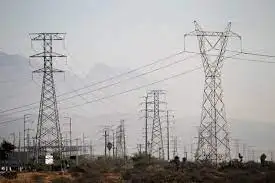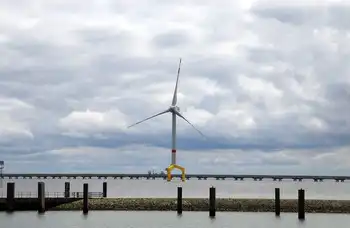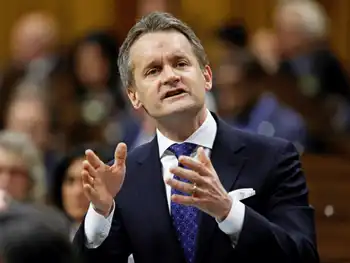Cost of power concerns councillor
A vocal opponent of energy retailers, McMillan said with market prices low, those signed up for fixed contract prices are paying even more because of the so-called provincial benefit.
"They're now out of the regulated price plan so they're out on their own," said McMillan, noting that retail prices are already higher than what is being charged under the regulated price plan.
Everyone in the province is subject to the provincial benefit, which is a charge or a credit depending on market prices. The provincial benefit was introduced after the province's regulated pricing came into affect. Under that system 90% of the province's power generators are paid a fixed or contract price for the power they produce. If market prices are higher than the fixed price, the difference is given as a rebate to consumers. If, however, market prices are lower than the fixed price, the difference is made up by a charge to consumers through the provincial benefit.
According to Ontario Energy Board spokesperson Paul Crawford, the provincial benefit has been a charge over the past months due to low demand creating low market prices.
Under regulated price plans the charge or rebate is averaged into what consumers pay per kilowatt hour (kWh) each month, but for those who signed on with retailers the provincial benefit appears as a separate per kilowatt hour line on their monthly bill.
One couple contacted McMillan after they noticed the charges on their bill for the provincial benefit kept escalating. Early in the year the provincial benefit was showing a charge of .676 cents per kWh, but a recent bill shows that had risen to 3.95 cents per kWh. Added to the agreed on 8.99 cents paid under the contract per kWh, the couple were paying close to .13 cents per kWh, more than double the average regulated price plan cost of 6.1 cents per kWh.
"You're getting beat twice," said McMillan. "Because you're paying the 7.99 to 9 cents in contract, then the provincial benefit."
The couple understood from the representative that they would receive a rebate on the money paid to the provincial benefit, but that didn't happen and the bill keeps going up.
Energy retailers have no choice in the provincial benefit charge, said Gerry Haggarty, president of Summitt Energy, and aren't responsible for the charge or credit.
"We don't receive any of that," he said yesterday. "It's Hydro One that is actually billing that, it appears on the contract merely as information."
He said if potential consumers ask about the line in the contract that states they are "eligible for the provincial benefit rebate," representatives should explain it's a charge or credit from the province.
Despite the fact that, due to the contract price, energy retailer customers might be paying more overall, they aren't paying more than their share of the provincial benefit, said Crawford.
"They are neither paying more or less than residential consumers who buy their electricity from a local utility," he stated in an email. "The provincial benefit charge or credit is the same for all consumers over time."
The provincial benefit itself isn't what worries McMillan but the overall impact of it added to the fixed cost in energy retailer contracts. McMillan maintains it is those who can least afford it who sign contracts, not realizing they will often end up paying more than most residential consumers. Add to that a provincial benefit charge and McMillan anticipates the consequences will be huge, he said.
"It will do the same thing that sub-prime mortgages did to the people in the United States," he said.
And with the closure of coal plants on the horizon, the introduction of the harmonized sales tax and more producers coming online in the energy sector with natural gas, solar and wind, people should expect to see higher energy costs continue, says one watchdog group.
"In the next two to three years we're going to be hit and be hit hard," said Carol Chudy, co-chair with the Clean Affordable Energy Alliance.
Coal and hydro generation are the cheapest way for the province to add power to the grid, said Chudy. What comes on to replace the gap left by coal generation will come at a higher price, she said.
That's something the OEB can't predict beyond its yearly forecasting, stated Crawford.
"It depends much more on the direction of market prices and the OEB cannot predict the direction of the open market beyond the one-year forecastÂ… It will also take some time before there is a material amount of solar and wind generation," he stated, noting that items such as wind generation generally provides power less then 20% or the time.
Related News

Mexican president's contentious electricity overhaul defeated in Congress
MEXICO CITY - Mexican President Andres Manuel Lopez Obrador's plan to increase state control of power generation was defeated in parliament on Sunday, as opposition parties united in the face of a bill they said would hurt investment and breach international obligations.
His National Regeneration Movement (MORENA) and its allies fell nearly 60 votes short of the two-thirds majority needed in the 500-seat lower house of Congress, mustering just 275 votes after a raucous session that lasted more than 12 hours.
eeking to roll back previous constitutional reforms that liberalized the electricity market, Lopez Obrador's proposed changes would have done away with…




